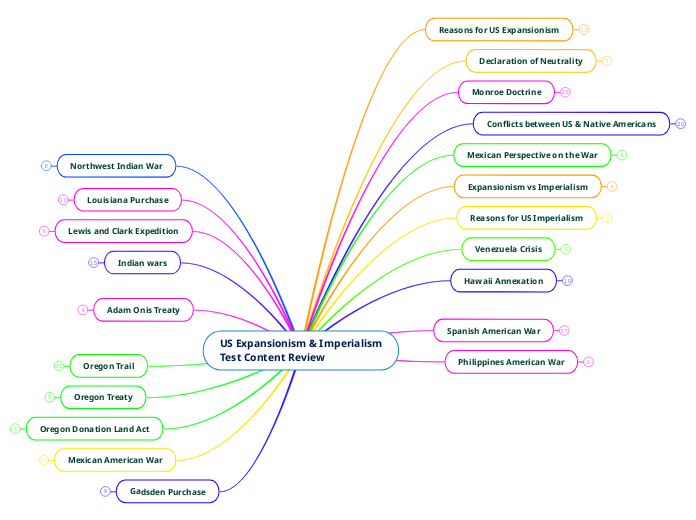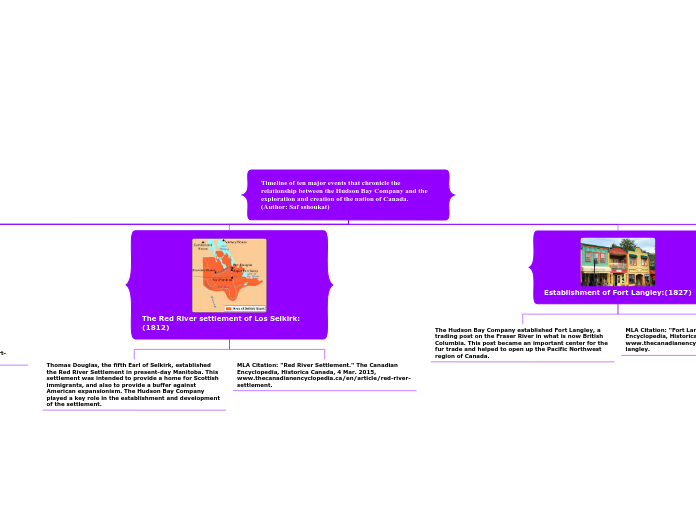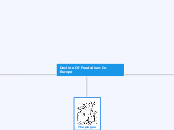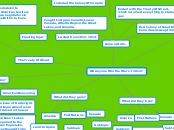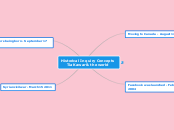US Expansionism & Imperialism
Test Content Review
Gadsden Purchase
Treaty of Mesilla
attempted to resolve conflicts that lingered after the Mexican-American War
Why (USA): build southern transcontinental railroad for trade
Why (Mexico): Santa Anna needed money
New Mexico
Southern Arizona
29670 sq mi
1853
Mexican American War
Treaty of Guadalupe Hidalgo
Texas, Arizona, California, Colorado,
Nevada, New Mexico, Utah, Wyoming
525000 sq mi for $15 mil
ended the Mexican-American War
1848
1846 Mexico gave ultimatum
(leave or we'll attack)
1845 Texas Annexation
Congress passed it under President Polk in 1845
1844 President John Tyler restarted negotiations
with Texas -> Treaty of Annexation
President Martin van Buren didn't want to annex
because he didn't want war with Mexico
1836-1846 US farmers moved into Mexican territory ->
US will protect their rights; manifest destiny
1836 Texas Independence -> needed to renegotiate borders
James Polk wanted to declare war on Mexico over Texas
used Mexico's ultimatum to blame
they initiated it -> US is the victim
1846-1848
Oregon Donation Land Act
encouraged settlement in Oregon Terrotiry
white/mixed people can claim land
after working on it for 4 years
1850
Oregon Treaty
President James Polk: “54˚ 40’ or fight!” threatened
Britain to give Oregon Territory, or else fight
northern border of Oregon has a latitude of 54˚ 40’
US got the Oregon Territory (Pacific -> Rocky Mountains)
British Columbia
Washington, D.C.
Oregon
treaty between UK and US signed in Washington, D.C.
1846
Oregon Trail
ended with the completion of the first transcontinental railroad in Utah in 1869
Dangers
accidentally shot by guns
crushed by wagons
diseases
dysentery (intestine infection)
cholera (intestine infection)
flu
small pox
1/10 died
Gold Rush
increased people on the Oregon Trail
1848: James Wilson Marshall found
gold in the American River (California)
$2 billion worth of metal
1849-1855
Whitman's goal: religion -> assisting white settlers
Cayuse War
killed Whitman
Cayuse blamed missionary wagons to carry measles
Cayuse vs federal gov
1847-1855
Great Emigration of 1843
drastic increase in emigrants on the Oregon Trial
1843
in 1835 Marcus Whitman wanted to spread Christianity and prove the Oregon Trail is safe
many followed their path -> Whitman Mission Route
(closed in 1842)
missionaries, merchants, trappers, traders
in 1834, Nathaniel Wyeth led the first religious group to Idaho
to emigrate west
mid-1800s
2000 mile from Missouri -> Oregon
missouri -> nebraska -> wyoming -> idaho -> oregon
Adam Onis Treaty
Spain had Texas
US got Florida + Oregon
border between Spain and Texas
1819
Indian wars
First Seminole War
forced Seminoles in Florida to move to Oklahama
Jackson won -> Spain: Adam Onis Treaty 1819
US got Florida
Andrew Jackson attacked Seminole villages in Florida
Seminoles vs US
1816
Battle of the Horseshoe Bend
Treaty of Fort Jackson forced Upper Creek to hand over 20 mil acres of land (half of Alabama) to the US
Most Red Sticks were killed -> Upper Creek lost
force of fighting American expansionism
Andrew Jackson vs. Chief Menawa + Red Sticks
separated into Upper and Lower Creek
Upper: against expansionism
Lower: pro-american
1814
1812-1887
Lewis and Clark Expedition
found gold, iron, land -> motivated westward expansion
initiated peaceful relations with native tribes
gave geographical information
surveyed the Louisiana Territory (Mississippi River -> Pacific)
Appointed by Thomas Jefferson
1804-1806
Louisiana Purchase
Why (France)? France (Napoleon Bonaparte) needed money to fight British, couldn't put down slave revolution in Haiti
Why (US)? US feared to lose free access if French gained control back -> land and commerce
1780s US settlers moved westward, depended on free
access to Mississippi river and New Orleans for trade
17-18 century: France
1762 French and Indian War: gave Louisiana to Spain
1801: secret treaty to return to France
size + location
15 states
mississippi river -> rocky mountains
doubled the size (+828,000 sq mi)
for $15 mil
during Thomas Jefferson's presidency
1803
Northwest Indian War
US vs natives in Northwest Territory
Minnesota
Wisconsin
Illinois
Indiana
Michigan
Ohio
1785-1795
Philippines American War
Organic Treaty
US would not leave until 1946
1902
US did not grant Philippines independence
1899-1902 (Philippines surrendered)
direct result of Spanish American War
Spanish American War
Platt Amendment
allowed US to interfere in Cuban affairs -> make naval bases
treaty between US and Cuba to protect Cuba's independence from intervention
1903
Teller Amendment
US would not establish permanent
control over Cuba
Outcomes
+ political power -> + territory
+ economic power -> + trade
acquired new territories -> new imperial nation
location: easier trade with China
Philippines, Puerto Rico, Guam
first major international victory -> legitimize military strength
Treaty of Paris
ammunitions return to Spain but can be purchased
-> US gets more money from Spain
US pays for prisoners of war
US got Puerto Rico, Guam, Philippines
US can trade without barriers with Spain, Cuba, Philippines
ended Spanish-American war
Militarism
glorification of military ideals -> war
increase training + use of military
Roosevelt and Rough Riders
myth about war and bravery
a country should maintain a strong military and be prepared to use it to defend or promote national interests
Paternalism
e.g. Cuba going through revolution -> US wants to help
stop suffering -> foreign imperialism
larger country helping smaller country without consent
De Lome Letter
enraged Americans -> increased anti-spanish
criticized McKinley as weak and only wants to please the public
Written by De Lome (Spanish ambassador in the US)
sensational headlines, exaggeration, fabrication
Pulitzer's New York World
Hearst's New York Journal
paternalism, militarism -> USS Maine ->
1898 exploded, men were killed -> blamed Spain -> war
USA vs Spain for Cuba
Under President McKinley
Causes
Short Term
Alfred T Mahan: new navy -> 3rd largest
Venezuelan Crisis 1895 -> + confidence
Hawaiian Annexation 1898 -> + confidence
Spanish treatment of Cuba
"The Butcher" General Weyler sent to put down Cuban
insurrections -> concentration camps
Cubans died rapidly in concentration camps
Yellow Journalism
USS Maine
Long Term Causes
Monroe Doctrine 1823
US industralization -> need raw materials
need to expand trade
weaker spanish gov -> Cuba Independence in 1868
Hawaii Annexation
1897:
- President William McKinley was for annexation, Congress was against
- Hui Aloha Aina (group of Hawaiians) opposed annexation & protested
1893:
- Hawaiian League overthrew Lili'oukalani
- President Cleveland opposed provisional gov
1892: Queen Lili'uokalani wanted to restore monarch power
Bayonet Constitution
forced King Kalakaua to sign new constitution in 1887
-> power to Hawaiian League
Americans in Hawaii formed Hawaiian League ->
American annexation of Hawaii
James Cook arrived in 1788,
US missionaries in 1810
didn't focus on Hawaii because US
was focused on westward expansion
King Kamehameha established Kingdom of Hawaii in 1705
1898
Venezuela Crisis
Richard Olney: US secretary of state
Lord Salisbury: British Prime minister
Olney told Salisbury to submit the boundary dispute
to arbitration. Salisbury said Monroe doctrine is not
an international law
Why (US)? gold
border dispute between British Guiana & Venezuela
British wanted land till the Schomburgk Line
1895
Reasons for US Imperialism
overproduced goods -> need to export -> new market
-> force colonies to buy via artificial markets (take what
they need, sell what they don't want)
food trade
industrialization -> cheap workers
growing population -> raw materials and resources
Expansionism vs Imperialism
Imperialism
colonies -> receives resources, exploit labor
natives don't become part of the nation ->
no need to give rights -> exploitation
force political system over them
moves to occupied territory
Expansionism
incorporate the acquired territory as part of the nation
expands to another territory
Mexican Perspective on the War
blamed the loss on Santa Anna's betrayal
Battle of Chapultepec
Ninos Heroes
patiotism
establish their status as victims
Juan Escutia wrapped himself in the Mexican flag
& jumped from the roof to prevent US from
getting the flag
1 general + 5 cadets refused to retreat
US vs Mexico at Chapultepec Castle
1847
Conflicts between US & Native Americans
Dawes Act
break up tribes -> easier assimilation
tribes no longer owned land -> gov gave land to each family
President Grover Cleveland
1887
Indian Removal Act
forced relocation of native americans from east
to west of Mississippi -> Trail of Tears
Cherokees resisted -> Worcester v. Georgia
Where? Tennessee -> Oklahama
many died of disease, starvation, extreme weather
1830-1850
clear Indians off east Mississippi -> more land
President Andrew Jackson
1830
forced assimilation (absorption of people
into a dominant culture)
loss of language, culture, identity
resulted from federal decisions to educate
Indians with "white man's ways"
opposition to change
US viewed natives as savage + uncivilized
need for space & resources
Monroe Doctrine
Monroe believes the US has a friendly relation with European countries
Britain wanted trade with Latin America -> would decline
if colonized by Spain -> support with royal navy
worried because European colonies -> can't expand, affect trade
justify forced removal of Native Americans
drive westward expansion
Beliefs
neutral stance
US would not interfere in internal European affairs
current policies & colonies
US is destined by God to expand and spread democracy + capitalism
1880-1898 Adult America
wants to influence the western hemisphere
has the military capacity
north and south america
unified after civil war
industrialized -> need to export
1848 - 1880 Teenage America
industrialization 1880
civil war 1861-1865
domestic slavery issues
controls coast to coast
1823 Baby America
focused on expansion
didn't control north America
little army & navy
new country
based off of declaration of neutrality
Where? entire north american continent
1823
Declaration of Neutrality
For: Alexander Hamilton
Against: Thomas Jefferson (didn't think it was necessary,
later resigned because he's in opposition), James Madison
(urged by Jefferson to speak against it)
Why? still a new country ->
weak, needed allies+trade
threatened legal proceedings against
americans who aided any country at war
US is neutral in the conflict
between France and Britain
George Washington
1793
Reasons for US Expansionism
rapid industrial growth
Economic
gold, mines, fields, factories -> extract wealth
Social
spread technology -> civilize land
believed christianity was better -> should spread religion
Political
believed mexico's gov was anarchy, barbaric ->
should take over & replace with democracy
didn't consider African Americans as civil humans
-> "no countries in the west" -> not invading
feed people & develop new cities ->
urbanization
slavery needed to expand to continue profits
-> agricultural/land profit
growing population (imcoming immigrants
from Western Europe) -> need land
1800: 5 mil
1850: 23 mil
